Share As A Gift
Share a paywall-free link to this article.
This feature is only available for subscribers.
Start your subscription for as low as $4.95. Already a subscriber?
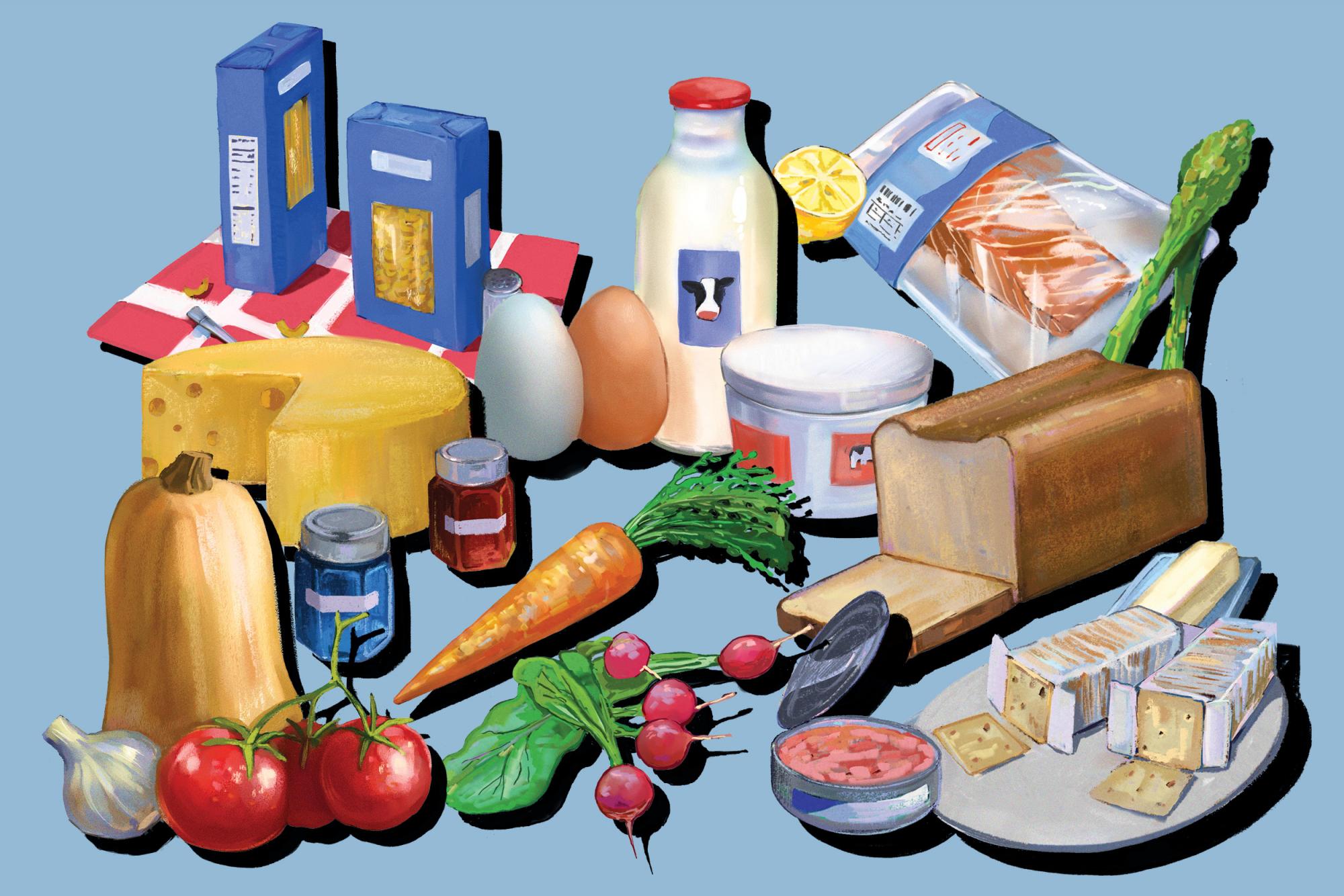
FOOD BANKS BEGAN to be overwhelmed with demand just a few weeks after COVID-19 pandemic mitigation measures began in the United States in March 2020. The economic fallout from stay-at-home orders and business closures hit hard and fast.
“There were people who were one paycheck away from lacking food access before the pandemic,” Wren Hack, director of the Hazon Jewish Lab for Sustainability in Detroit, told Sojourners. “And when COVID hit, they joined the ranks of food insecurity.”
In April 2020, more than 56,000 metro Detroiters said they often did not have enough to eat, according to a U.S. Census Pulse Survey. By early February of this year, about 87,400 said they often had insufficient food.
It is hard to predict when those numbers will improve, Hack said. Food access in Detroit is still a challenge despite businesses reopening over the past year. But Hack, alongside other leaders of several faith groups and nonprofits, have found ways to make food more accessible during volatile times. Their strategy: making sure scraps don’t go to waste—even those that may seem inedible. They are working together to make sure leftovers from local restaurants and unsold produce from big-box grocers reach people in neighborhoods where food is in short supply. These faith leaders’ logic is simple: Why should all that food be wasted when it can be served?
HACK NEVER INTENDED to work in food rescue. But the unruly pandemic brought food access to the forefront of her work at Hazon. “People lost their jobs, and they were furloughed,” she said. In June 2020, when COVID shutdowns were high, Detroit had a 43 percent unemployment rate, according to a post by the Detroit Metropolitan Area Communities Study at the University of Michigan. Even as of last August, unemployment hovered around 25 percent in the city.
“And at whatever means possible, you have to feed people, right?” Hack said. “You cannot let people go hungry.”
But Hack recognized one person’s or organization’s efforts wouldn’t change the system. Hazon partnered with Metro Food Rescue, a nonprofit founded by Chad Techner, to help with food collection and distribution. Techner, a local funeral director who also has culinary training, shared Hack’s concerns about both hunger and wasted food. “I had approached Hazon just before the pandemic to talk about partnering for rescuing food in the events and catering space,” Techner said. “But then we found more opportunities in food rescue, working together in partnership and mentorship for that first year of COVID.”
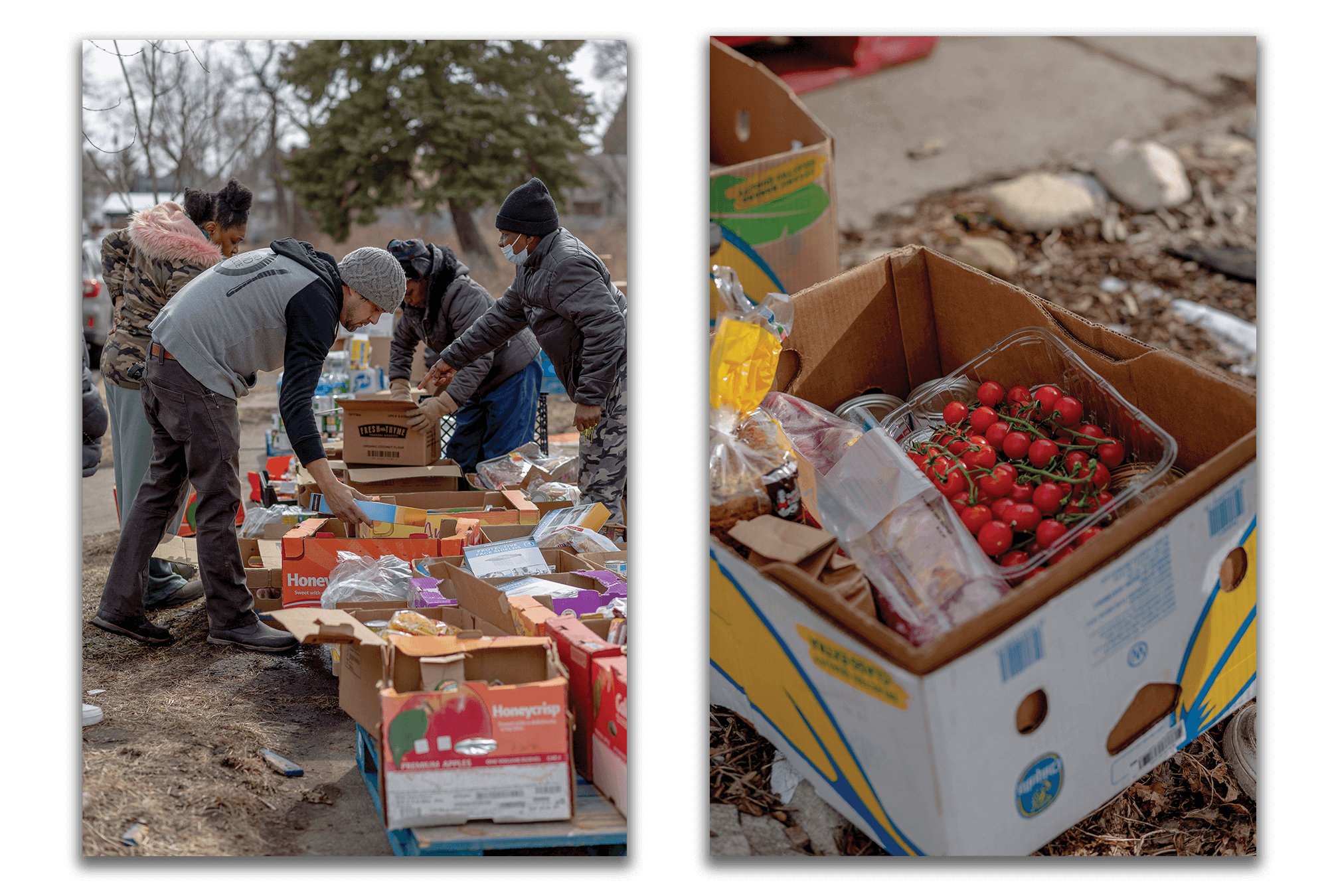
Chad Techner, founder of Metro Food Rescue, sorts through food during a neighborhood food distribution. / Sylvia Jarrus
Hazon then met Antonio Hill, a minister based in Detroit’s Rosedale Park neighborhood.
Hill was furloughed from his job as a security guard and wanted to help his community during the pandemic. He started making meals in his backyard with a grill he made from scrap metal.
“When you’re hungry, you can’t eat. You can’t hear. You can’t see—I would know,” Hill said.
Hill, who describes his meals as “prayers on plates,” wanted to give out meals because he struggles with food insecurity. He knows what it’s like to be hungry and not know where to find a warm, home-cooked meal.
Hack was one of many who would drop food at Hill’s house. She would pick up excess produce, meat, and nonperishable foods from big-box vendors and help transport it to local synagogues, churches, mosques, and other places in the city that provided free meals. Hack also reached out to leaders outside of faith communities. She found a hall monitor at a local school who was giving away food in her backyard. She got in touch with urban farms to help her in her efforts. The goal? To create a citywide ecosystem made up of neighbors helping neighbors.
Hack kept her efforts grassroots. She dropped off food to people who knew the people in their communities. It’s essential that leaders know their people’s diets, she said. “We know every community partner we work with,” she said. “We know what they want and what they don’t want.”
Still, as food insecurity grew and the pandemic beat on, she questioned whether their efforts were enough. “There was such a determination of ‘We’re not going to let anybody be hungry,’” Hack said. “We were sustaining life, and we were utilizing food that would have harmed the environment and gone to waste.
“But does it change the system of access? No.”
DETROIT HAS BEEN labeled an urban food desert for more than a decade, but the city has also experienced a renaissance for urban agriculture and out-of-the-box solutions to food insecurity. For the city’s 139-square-mile footprint, there are hundreds of community gardens and at least 15 farmers markets, including historic Eastern Market, the country’s third oldest, which hosts more than 150 vendors, according to the Detroit Food Policy Council.
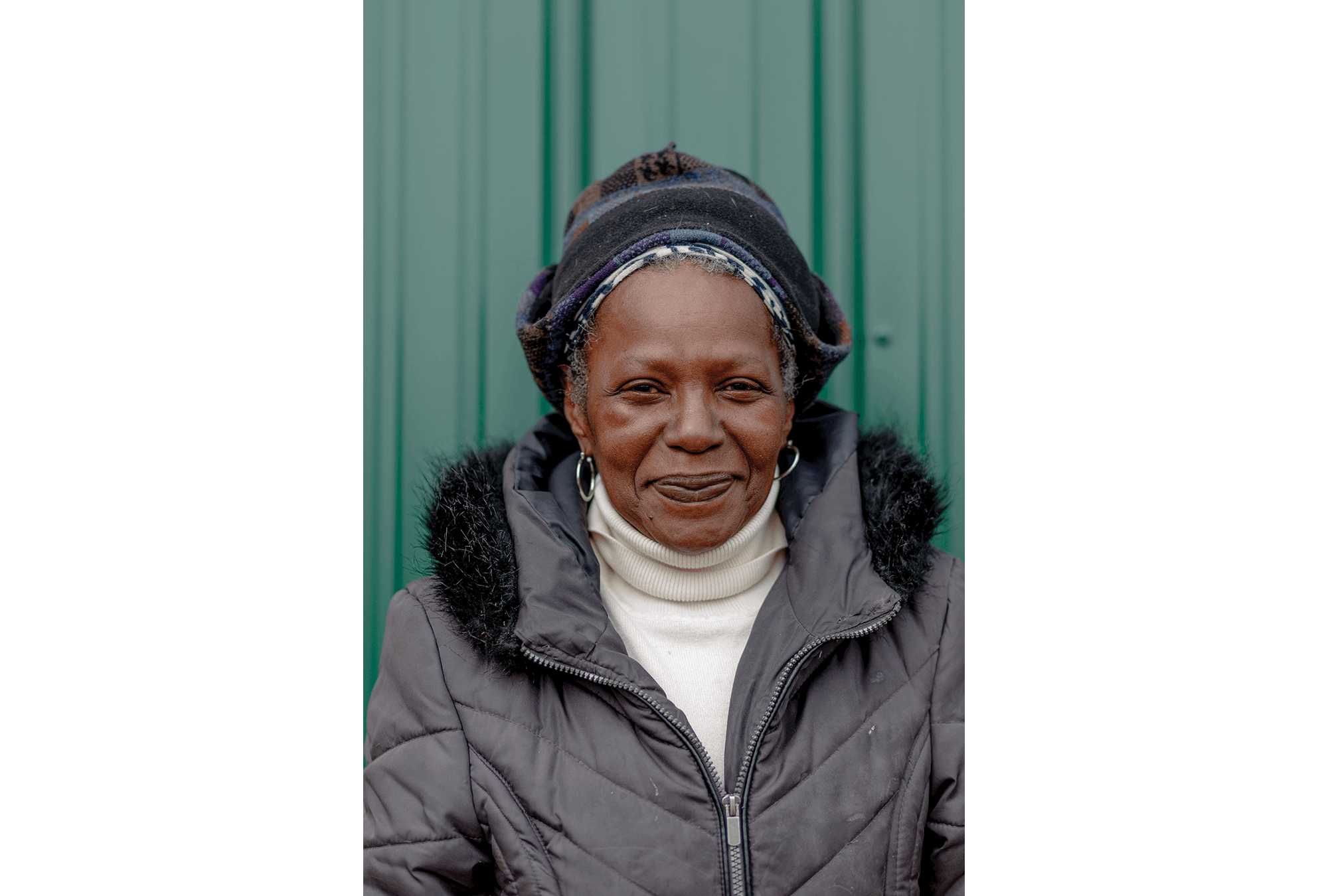
Donnesie Greenlaw has been volunteering with Metro Food Rescue for a year. "It's beena joy," she said. / Sylvia Jarrus
“When you say ‘food desert,’ people immediately think of a barren wasteland with no food,” said Alex B. Hill, an urban studies professor at Wayne State University. “But there’s a ton of food in Detroit.”
Hill pointed to other barriers to food access, saying there is a key difference between access to food in general and access to healthy, affordable food. There are barriers that impede people’s ability to find something they want to eat and that they can afford, he said.
Farmers markets can be more expensive and further away than the local convenience store—and that corner shop may also only be a quick walk away. Travel plays a significant role in food access, particularly in a pandemic, where public transportation may be scarce and people fear exposure to the virus.
And when there are nutritious resources out there, those options must be successfully promoted within the community—easier said than done. Education and information are their own hurdles.
In the face of all these structural issues, food rescue is important, but it is not enough, said Malik Yakini, executive director of the Detroit Black Community Food Security Network, an organization dedicated to addressing food security through Black empowerment. “On a certain level, if people are hungry and you’re able to provide food, that’s a noble thing,” Yakini said. “I’m not critical of people who are giving away food. I just don’t think they should do it with the illusion that that’s going to solve the problem.”
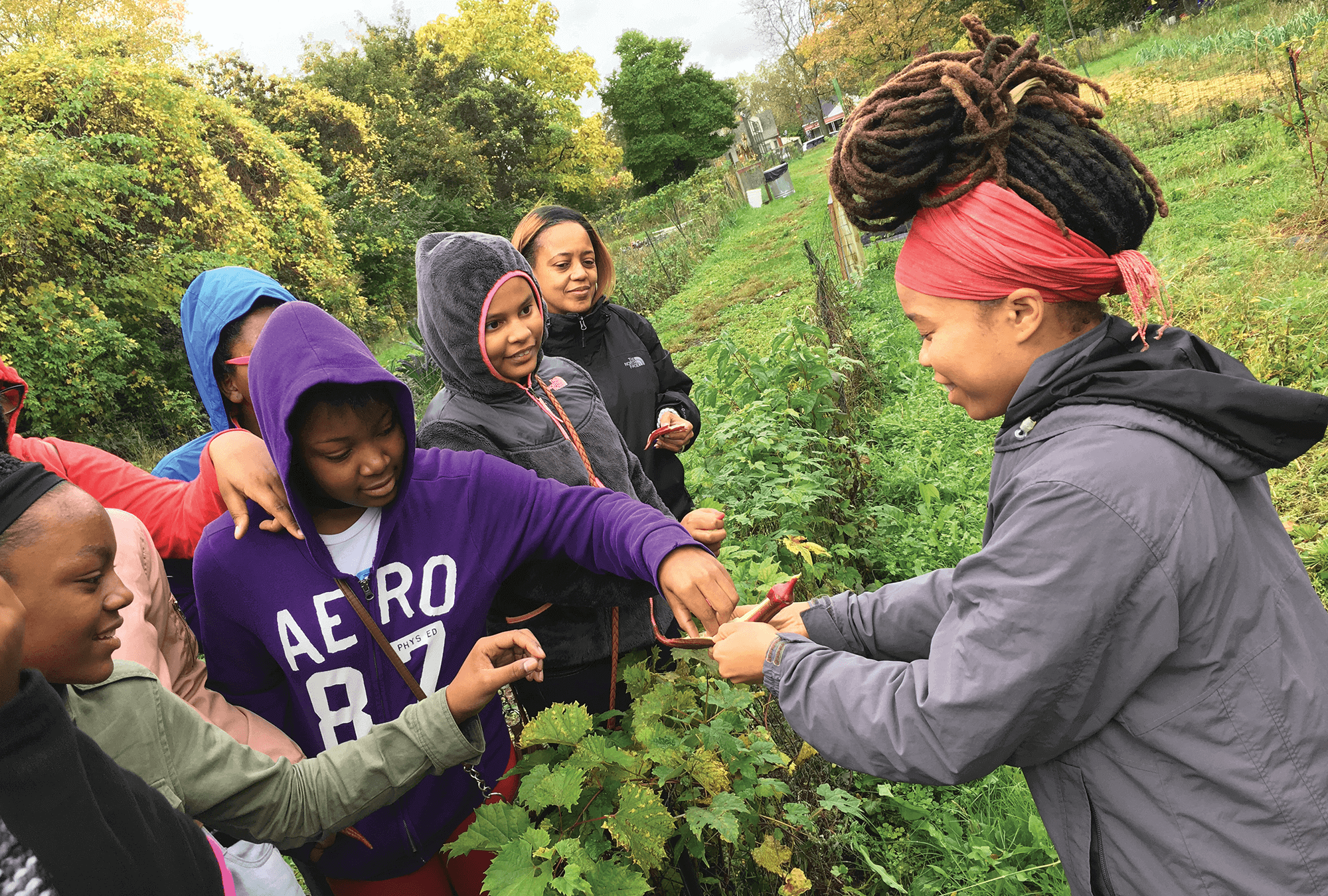
Shakara Tyler (right), board president of the Detroit Black Community Food Security Network, with young people at a community garden. / Malik Yakini
Hack agrees with Yakini that food rescue doesn’t solve underlying issues, noting the incremental barriers that lead to hunger. But it is still one of a broader set of tools to address people’s immediate need for food. She and other faith leaders wondered: If food rescue can only do so much, is there nevertheless a way to make it better?
IN EFFORTS TO make food rescue more environmentally sustainable, Hack turned toward the prepared food from restaurants and grocery stores that goes to waste. She began working with Darraugh Collins, the Detroit site director for Food Rescue US, an app that connects vendors with volunteers to transport excess food to donation sites.
Experts estimate 2 million tons of food are wasted in Michigan annually. But with Collins’ app, 7.69 million pounds, or about 3,845 tons of food, has been kept from going in the trash, she said. Collins works to transport any food that is edible.
“Prepared foods and already-made meals are really helpful,” Collins said. “But the large food banks don’t typically pick up prepared food, whether it’s from grocery stores or even from restaurants. We make sure that food does not end up in the landfill either.”
When Hack shifted to taking any edible food available, the market opened wider, she said. She would transport food from big-box vendors, local grocers, restaurants, pantries, and neighborhood homes that would otherwise go to waste.
Amid her efforts, Hack came across Make Food Not Waste, an organization that partners with Jefferson Avenue Presbyterian Church to make sure scraps are used within the city. Founded in 2017, the nonprofit is made up of local chefs, who make meals in the church’s basement—dubbed the Upcycling Kitchen—with assistance from church volunteers.
Danielle Todd, executive director of Make Food Not Waste, said sustainable efforts both help the environment and alleviate hunger—but the food also needs to taste good. They work hard to “chef it up.”
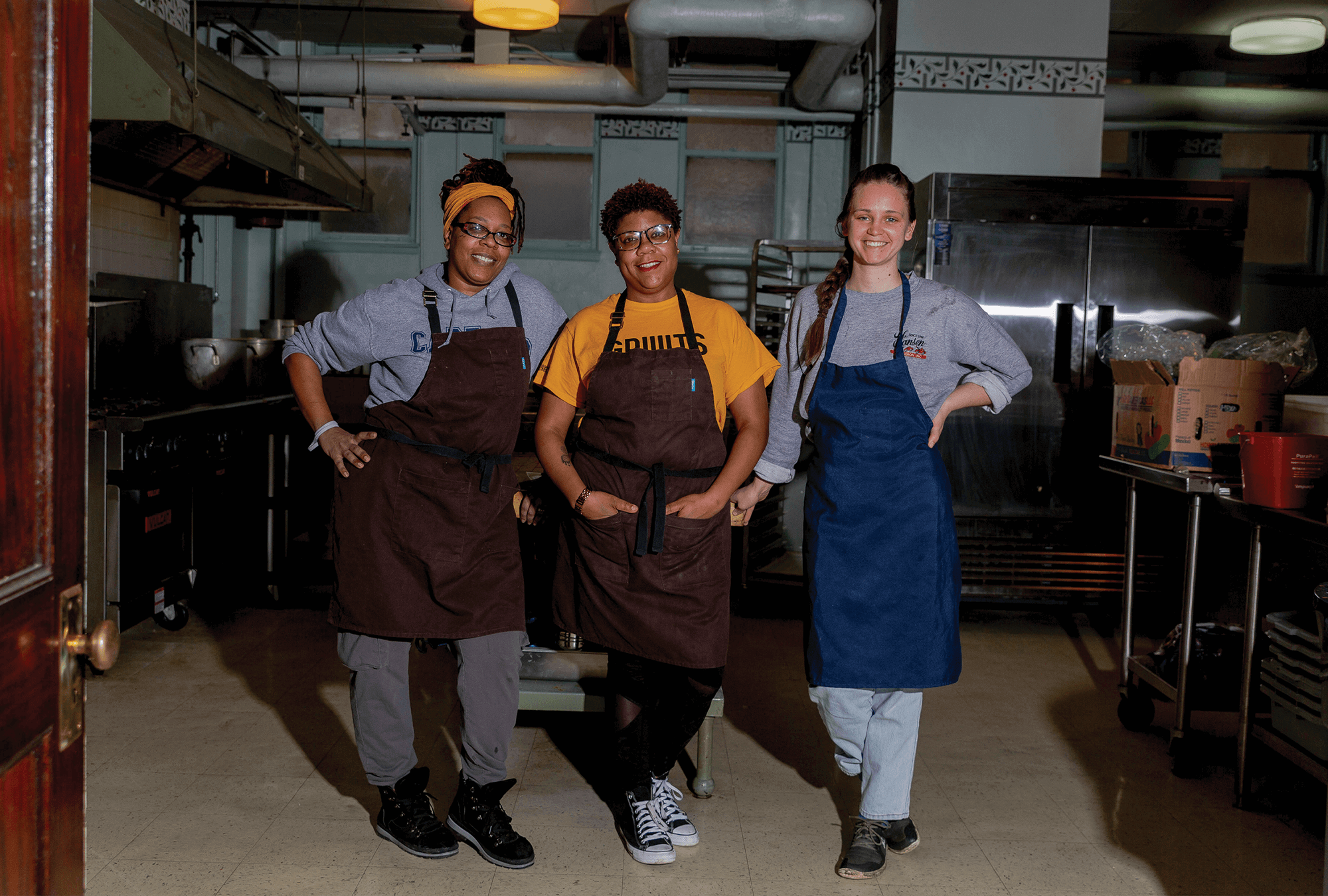
Chef Shay Goudia, lead chef Ederique Goudia, and Shannon Zandee in the Upcycling Kitchen where they prep and cook meals at Jefferson Avenue Presbyterian Church in Detroit. / Sylvia Jarrus
“We really try to push the envelope in terms of what we can use in our meals,” Todd said. “We take leftover juice pulp from juicers, leftover grain from the brewing process from making beer. We have been taking in scraps from a local pierogi maker.”
Ederique Goudia, lead chef, said it was important to get creative to be more sustainable. “At one point in the season, there was an overabundance of Brussels sprouts—like eight truck pallets of Brussels sprouts,” Goudia said. “The first week, we made roasted Brussels sprouts. We made curry and put Brussels sprouts in the curry. But how many times can you feed people Brussels sprouts?”
Instead of dumping the rest of the batch, Goudia then made a pesto, hiding the taste of the Brussels sprouts, she said. Sometimes there are other surpluses, such as a bunch of tomatoes or too-ripe bananas, she said. But they always find a way to make it work. “I love to be able to rescue food and be very intentional about what I do with it, keeping in mind what I have previously served,” she said. “That’s important.” Goudia knew what her community would want to eat. Like Hack, her efforts are grassroots.
Paul Booker, a church elder, said they served 175 families a week with meals prepared by Make Food Not Waste’s chefs, in a sustainable model that is a more charitable way to rescue food.
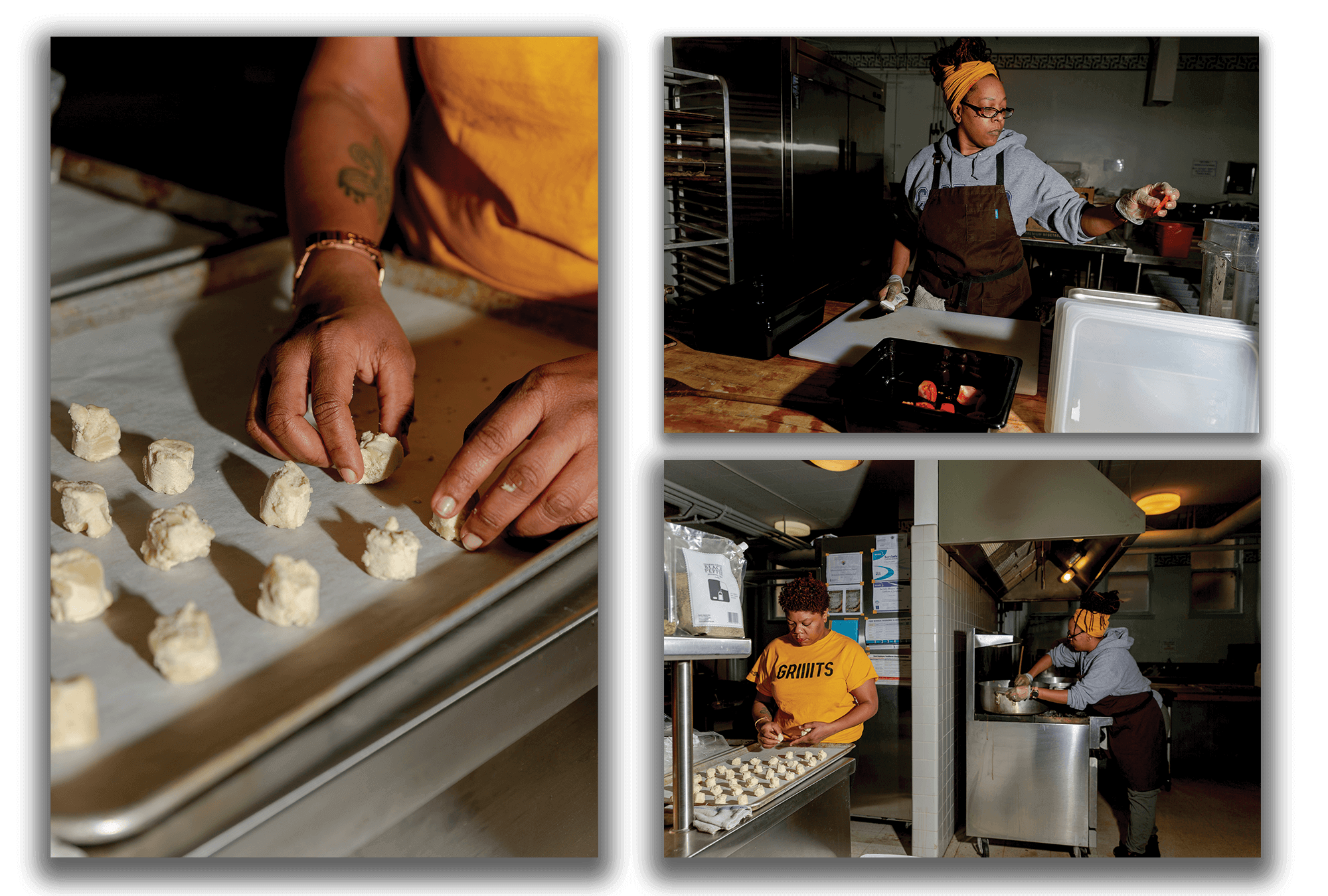
Lead chef Ederique Goudia lays out frozen cookie dough on trays while chef Shay Goudia preps a pasta primavera in the Upcycling Kitchen. / Sylvia Jarrus
“I always say if you’re Christian, your heart’s to be working to help those that are in need,” Booker said. “‘Love God with all your heart, mind, body, and soul, and love your neighbor as yourself.’ Those are the most important things. If you’re not doing that, you’re not heeding Christ’s commandment.”
FOOD RESCUE CAN be exhausting, Hack said, reflecting on her efforts more than a year and a half after the pandemic hit the United States. “You’re always lifting, always moving boxes, always driving,” she said. “Yeah, it took a huge mental and physical toll.” In March 2021, Hack transitioned out of physically rescuing food to focus more on Hazon’s core mission of environmental sustainability. She handed the reins to Techner and Metro Food Rescue, who were better equipped to handle the coordination and deliveries. “Food rescue is something that I can’t, in good conscience, stop doing,” Techner said. “It would be like me deciding to throw away 7,500 loaves of bread and 20,000 pounds of other food every single week.” The rescue system continues to thrive among the multifaith network that developed during the pandemic.
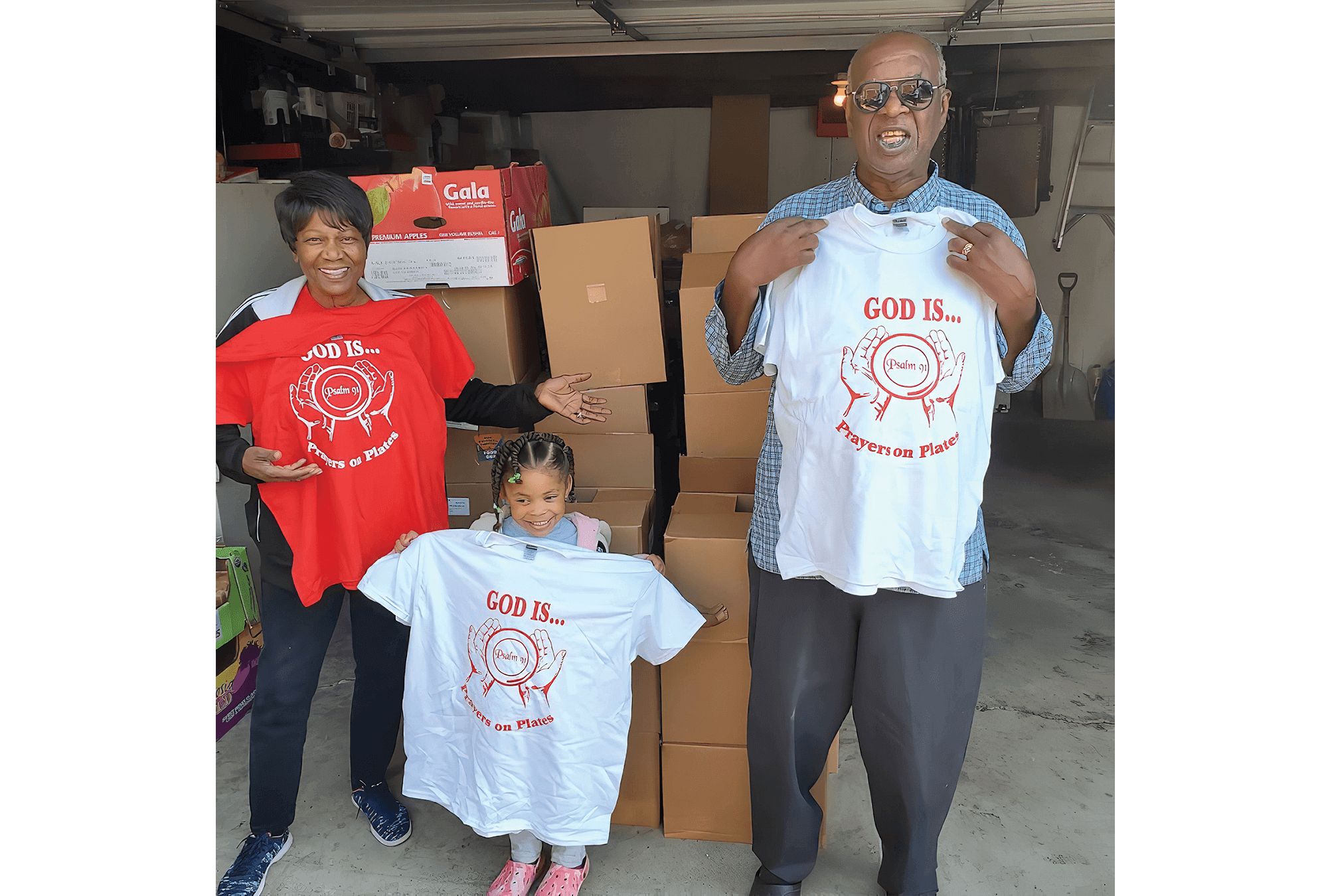
The Gardner family helps provide "prayers on plates." / Antonio Hill
Hack admires all the people on the ground working for better food access, she said, noting the Detroit Food Policy Council and its partners. Free food may not be the sole solution, but Hack is still examining ways it can be better. She has been giving out composting kits to different community members and joining efforts to help people grow their own food.
“This is a community movement,” Hack said. “If the willingness is there, the Detroit community can do anything.”
Hack thinks, perhaps, other communities could try these sustainable solutions, too.
Got something to say about what you're reading? We value your feedback!